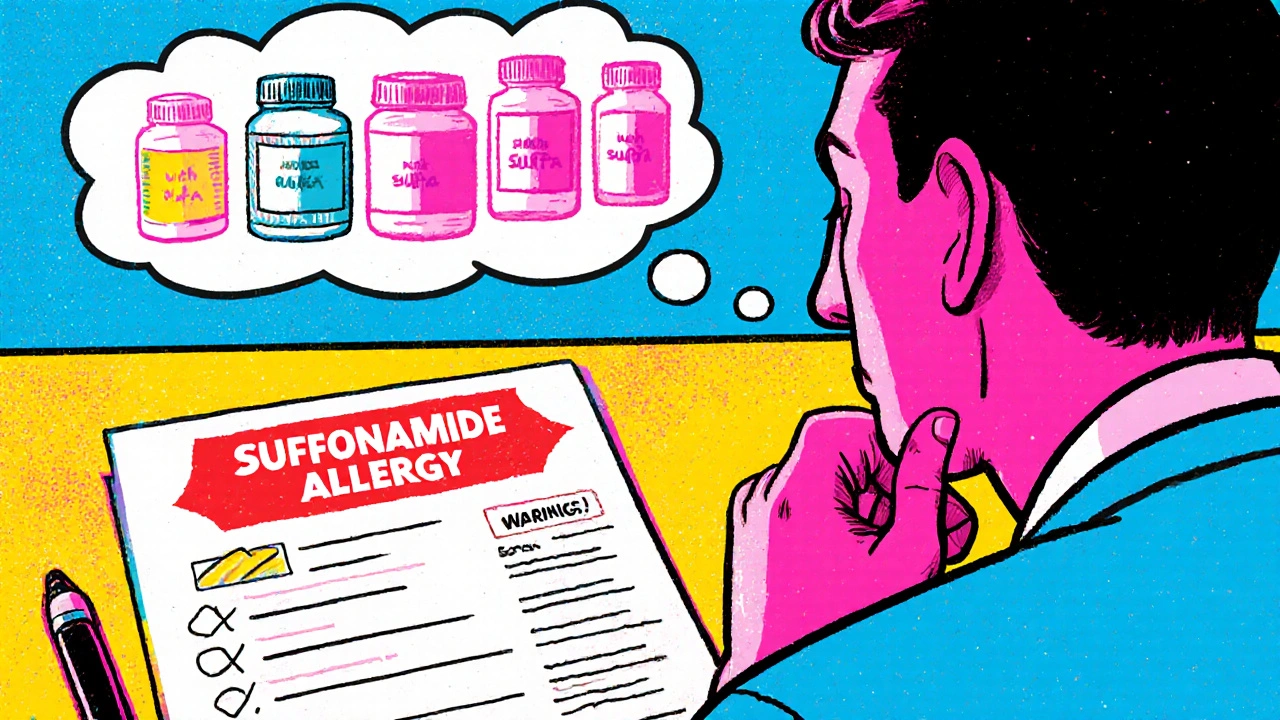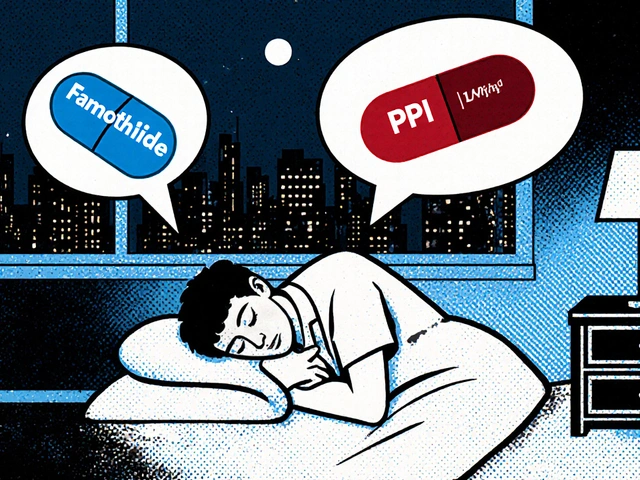Sulfonamide Allergy: What It Is, Symptoms, and Safe Alternatives
When your body reacts badly to sulfonamide, a class of antibiotics and other drugs that contain a specific chemical structure. Also known as sulfa drugs, they’ve been used for decades to treat infections—from urinary tract infections to pneumonia—but for some people, even a small dose can trigger a serious reaction. This isn’t just a rash. A sulfonamide allergy can mean hives, blistering skin, fever, swollen lymph nodes, or in rare cases, life-threatening conditions like Stevens-Johnson syndrome or toxic epidermal necrolysis. If you’ve ever had an unexplained skin reaction after taking Bactrim, Septra, or a diuretic like hydrochlorothiazide, you might be dealing with this type of allergy.
Not all sulfa-containing drugs are the same, but the risk is real. People with a confirmed sulfonamide allergy need to avoid not just antibiotics like sulfamethoxazole, but also certain diabetes pills (like glyburide), migraine meds (like sumatriptan), and some diuretics. The confusion comes from the fact that sulfonamide drugs are different from sulfites in wine or sulfate in Epsom salts—those won’t trigger the same reaction. Still, doctors usually play it safe: if you’re allergic to one sulfonamide, they’ll avoid the whole group. That’s why knowing your exact reaction history matters. If you’ve had a mild rash, your doctor might still consider alternatives. If you’ve had a severe reaction, you need a clear medical alert.
Thankfully, there are plenty of safe alternatives. For infections, doctors often switch to non-sulfa antibiotics like doxycycline, azithromycin, or levofloxacin—options covered in detail in several posts here. For high blood pressure, hydrochlorothiazide might be swapped for a different diuretic like chlorthalidone or a non-diuretic option entirely. And if you’re managing diabetes or migraines, there are non-sulfonamide versions available too. The key is communication: always tell every provider you see about your allergy, even if it happened years ago. Many people forget, but it can change your entire treatment plan.
What you’ll find below are real, practical comparisons from trusted health guides. You’ll see how doxycycline stacks up against other antibiotics, how hydrochlorothiazide compares to its alternatives, and how to spot hidden sulfa ingredients in common meds. No fluff. No guesswork. Just clear, tested info to help you avoid reactions and find safer options.









